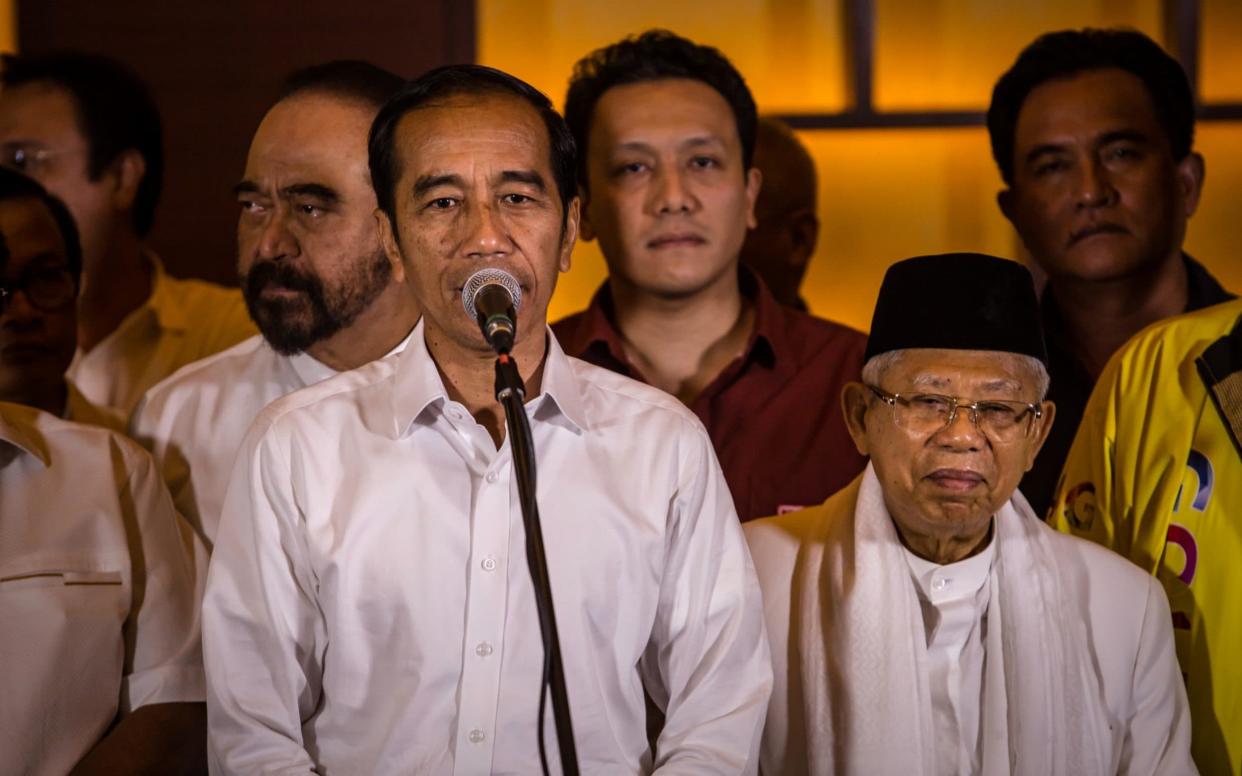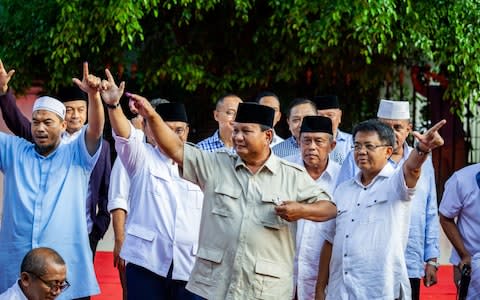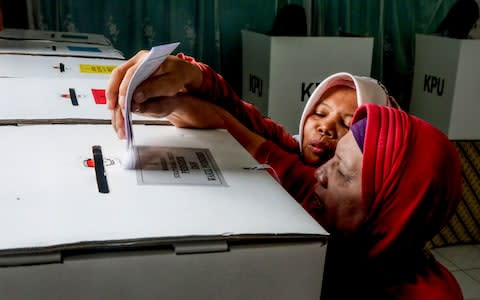Indonesian president poised for re-election after mammoth poll

Indonesia’s President Joko Widodo is poised to win a second term, based on unofficial results released within hours of polls closing.
The so-called “quick counts”, using data from some of the Southeast Asian nation’s 800,000 polling stations, gave Mr Widodo, 57, also known as Jokowi, a substantial lead over his rival Prabowo Subianto, 67, a nationalist former military general.
According to a quick count by the Jakarta-based Centre for Strategic and International Studies (CSIS), Mr Widodo had an 11 percentage point lead with 76.8 percent of the votes counted, reported Reuters.
Official results from the world’s largest single-day poll will not be announced by the election commission until May 22, but initial counts from reputable pollsters in past elections have proved to be reliable indicators.
Speaking to a crowd of supporters, Mr Widodo acknowledged the exit poll results but called on all parties to wait for the official final tally.
He urged all members of the public to reunite as brothers and sisters following the bitterly contested presidential race.
His opponent, Mr Prabowo, 67, also asked his supporters to “remain calm” and “unprovoked from committing anarchy,” but he immediately disputed the reports that Mr Widodo was winning, while raising allegations of incompetence and corruption that had hindered his voters.

In a statement reported by ABC News he claimed that “our exit poll in 5,000 polling stations show that we have won at 55.4 percent” and that pollsters and surveys were weighted against him.
He alleged that “many ballots were not delivered to the polling stations, many polling stations were opened [late] at 11am. There were many anomalies.”
The presidential race was a re-match of the 2014 contest between the same two candidates, when Mr Prabowo also disputed the results after a narrow loss.
The delay in issuing the official results is a reflection of the vast logistical operation required to hold a presidential and parliamentary election on the same day across three timezones and an archipelago of some 17,000 islands.
More than 192 million Indonesian voters were eligible to cast their ballots for roughly 245,000 candidates.
Analysts suggested there was not a huge variation between the economic agendas of the two leading presidential nominees, leading them both to lurch to the right to court conservative Islamic forces in an effort to garner more votes.

“This election is believed to have been the most divisive in recent Indonesian history, one in which religion and identity politics played a central role. It was a battle for the future of Indonesia, between a pluralist vision and an Islamist agenda,” said Benedict Rogers, East Asia team leader for Christian Solidarity Worldwide.
“Religion was important for both candidates. Prabowo built a coalition of hardline Islamic groups, while Jokowi chose a conservative Muslim cleric as his running mate, in order to neutralise the use of the religion card against him,” added Mr Rogers, who wrote the 2014 book, Indonesia: Pluralism in Peril.
“If the result is, as the ‘quick count’ suggests, a clear victory for Jokowi, then in his second term he must use that as a mandate to enhance Indonesia’s pluralist values, promote the rights of minorities and counter the religious intolerance that is poisoning politics and society.”

